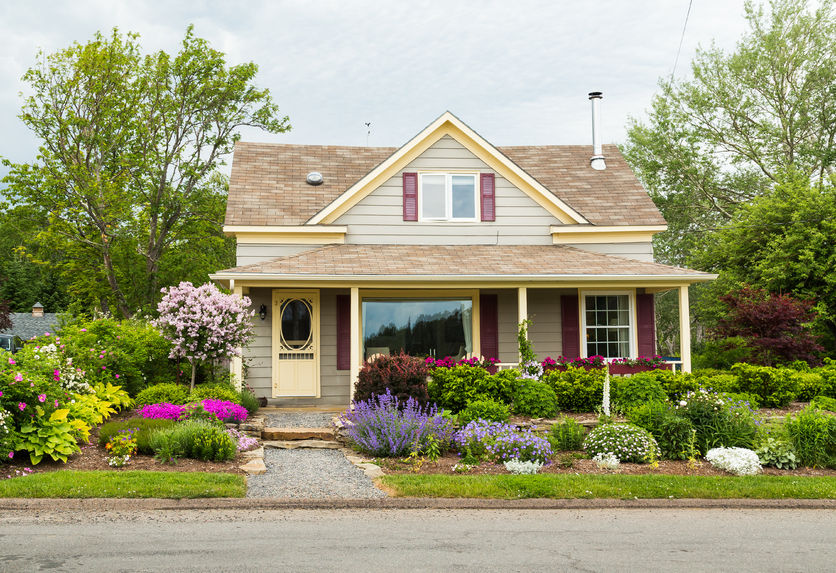
When you file for bankruptcy, any asset you own is considered “property of your bankruptcy estate”. An asset is anything you own or have or control, regardless of whether it is financed. Homes, however, tend to be unique because if you reside in your home as your primary residence and/or your homestead, it will be protected from your creditors in most cases. The bankruptcy code provides ways that you may be able to protect your home with a homestead exemption.
If your home is financed with a mortgage or a home equity line of credit, you need to make sure that you are current on your payments to the mortgage company. This is the situation in which most people lose their homes in bankruptcy. It is important that if you are in foreclosure or behind in your payments to your mortgage company, that you speak to an experienced bankruptcy attorney about your options about saving or surrendering your home, which chapter of bankruptcy to file, and how realistic your options are.
If you plan on keeping or saving in bankruptcy, you need to also figure out if you have equity in your home. If your home does not have equity, this means you owe more than what the home is worth. For example, if your home is worth $223,000, but you owe $315,000, you do not have equity in your home because you owe more ($315,000) than what your home is worth ($223,000). There is no perfect website to help you determine the value of your home. Websites like the Property Appraiser for the county you live in tend to value your home at less than market value. Websites like Zillow tend to overvalue your home. The best way to determine how much your home is worth is to hire an appraiser to come out, look at your home, take photos, and provide an appraisal report. The appraisal report provides the most accurate review of how much the home is worth and what is could sell for in today’s market. If you do have equity in your home, Florida’s limit on your homestead exemption is currently approximately $170,000.
If you have no equity in the home, you should decide if you want to keep it. Is the payment easy for you to make? How high is the interest rate? Do you have additional costs such as mortgage insurance, property taxes, homeowner’s association fees, etc. Decide if you can afford to keep the home or consider whether you should surrender it. The bankruptcy surrender process is fairly simple – you notify the court of your decision to surrender the home and the mortgage company will start the process of changing the title back to them and out of your name. This is usually done through a foreclosure case. Due to the court case of In Re Failla, if you choose to surrender your home in bankruptcy, you cannot fight or bring any legal defenses in the foreclosure case. That would show bad faith on your part.
If you surrender the home, you will also be discharged of any financial obligations that took place before you filed bankruptcy. This means any and all missed payments for your mortgage or for your homeowner’s association fees would be discharged through your successful bankruptcy. It is important to note, though, any homeowner’s association fees that become due after you file bankruptcy will remain your responsibility. It is almost like paying rent to stay in your home after you surrender it.
If you have equity in your home, calculate how much. If your home is worth $350,000 but you owe $245,000, this means you have equity of $105,000.00 in your home. Because this equity is less than the limit of the Florida exemption on your homestead, you will be able to keep your home in bankruptcy. You must also keep making payments all throughout the bankruptcy case.
Another reason to consider whether to keep your home in bankruptcy deals with how much of your personal property you get to exempt. When you file for bankruptcy, you also have a certain dollar amount of personal property you may exempt. Often times, this personal property exemption is used to protect things such as your jewelry, your furniture, and your electronics. The amount of your personal property exemption depends on whether you claim a homestead exemption and whether you are filing with a spouse.
- If you file for bankruptcy and are claiming a homestead exemption (meaning you own your home and intend on keeping it), you will have a personal property exemption of $1,000.
- If you file for bankruptcy and you do not claim a homestead exemption (meaning you own your home but are surrendering it), you will have a personal property exemption of $5,000. This is sometimes known as a wildcard exemption.
- If you are filing bankruptcy together with your spouse, these amounts double to $2,000 and $10,000 depending on whether you claim a homestead exemption or not.
Meeting with an experienced bankruptcy attorney can ease your fears and ensure your paperwork, and most importantly your exemptions, are done correctly. There is no substitution for the advice an experienced bankruptcy attorney can provide. Most debtors risk losing their home if they do not have an understanding in their exemptions and what they can protect. You may find a great value in the fees you pay for an attorney to handle your paperwork correctly and counsel you about your exemptions. Contact Feher Law to set up your complimentary bankruptcy consultation at 727-359-0367 or Kfeher@FeherLaw.com.
